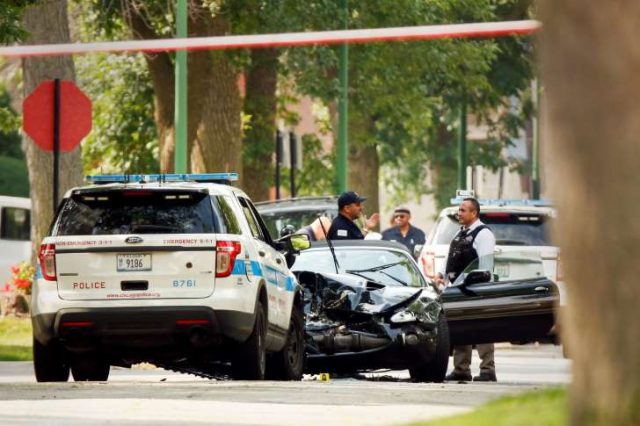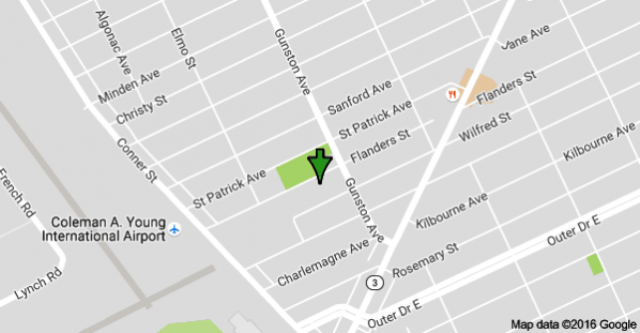Above: Performance by the “Flowtown Revue” at “Mapping the Water Crisis” book launch forum Aug. 14
Detroit residential water shut-offs skyrocket, 13,750 households from May to July–Detroit News
“The destruction of our neighborhoods is not haphazard or arbitrary but deliberate and intentional”—Dr. Gloria House, Hon. JoAnn Watson
Coming: Health study on effects of water shut-offs, teaching residents how to test their own water for contaminants like those which poisoned Flint
Story by Diane Bukowski
Videos by Leona McElvene
August 24, 2016

JoAnn Watson

Dr. Gloria House
“Detroit community activists recognize that the water crisis and the other destabilizing policies, driven by corporate and government austerity imperatives, are leading to the erasure of our communities, to a reconfiguring of city land and resources to accommodate corporate objectives. To put it simply, we understand that the forces at work are genocidal. . . .The mapping of water shutoffs and other hardships leading to residential displacement indicates that the destruction of our historic neighborhoods is not haphazard or arbitrary, but deliberate and intentional.” –From foreword by Dr. Gloria House and the Honorable JoAnn Watson, for “Mapping the Water Crisis—the Dismantling of African-American Neighborhoods in Detroit.

Gary Brown (l), Charles Pugh at City Council, sat on secret Committee that decimated DWSD, voted April 4 for Consent Agreement that sparked Detroit takeover.
“A lot of people believe that they don’t have to pay for water because it should be free, which is nothing further from the truth. Those that can pay must pay. We’re re-prioritizing our shut-offs—we’re going after our commercial accounts first, we’re going after our illegal hook-ups, and then we’re going to go after those that are past due more than 60 days, our residential accounts that are in payment plans but don’t meet that obligation. We’re watching the metrics very closely.” Gary Brown, Director DWSD, who now issues monthly “Metrics” graph report instead of detailed narrative provided by former Director Sue McCormick, now GLWA director.
DETROIT – Over 25 percent of Detroit’s residential water customers, a total of 35,857 households, are currently scheduled for water shut-offs or in line for them because they are 60 days past due and owe over $150 in back bills, according to a “Metrics” report by Water and Sewerage Department (DWSD) Director Gary Brown dated Aug. 9.

Detroiter Rochelle McCaskill meets in her home, where she lives with three daughters and a grandbaby, with UN reps Oct. 19, 2014. Her water was shut off despite her doctor’s letter, posted on her door, thjat she suffers from MRSA, a contagious antibiotic-resistant infection that causes severe sores and boils. She must bathe three times a day and frequently wash her clothes to prevent infecting her family. She almost died of sepsis earlier.
Another 18 percent, or 25,356, are on frequently unaffordable payment plans. DWSD rates have skyrocketed 120 percent over the last 10 years, They far exceed those charged in most outlying communities, according to a report announced Aug. 14 by the We the People of Detroit Community Research Collective. The report found also that Detroiters, who have a child poverty rate of 59 percent, are subject to rigid shut-off standards not faced by those in mostly white, middle and upper-class communities
The Detroit News reported Aug. 23 that DWSD, using its contractor Homrich, has shut water off to 13,750 Detroit households from May through July of this year. DWSD awarded a nearly $6 million contract for the work in May. That is more than the $5 million allotted for the WRAP water assistance program by the regional Great Lakes Water Authority (GLWA), which now controls the former DWSD six-county service area, as well as water and wastewater plants and major mains within Detroit itself.
Residences account for 97 percent of shutoffs, but only 58 percent of delinquent debts, News reporter Joel Kurth said, despite Brown’s earlier promises that commercial accounts would be shut off first.
 “Shutoffs ramped up in May and, since then, crews have cut water to an average of 150 homes per day,” Kurth wrote.
“Shutoffs ramped up in May and, since then, crews have cut water to an average of 150 homes per day,” Kurth wrote.
Brown no longer reports how many houses have been permanently shut-off no matter who moves in, because of past “illegal usage,” essentially wiping them off the map. Desperate for this basic necessity of life, residents there had turned their water back on themselves. Former DWSD Director Sue McCormick, now head of the regional Great Lakes Water Authority, reported that number was 16,078 residential accounts as of Oct. 29, 2015.

Packed hall at “Mapping the Water Crisis” book launch forum Aug. 14, 2016.
Members of the “We the People of Detroit Community Research Collective” said Aug. 14 that the shut-offs and foreclosures resulting from the attachment of unpaid water bills to tax bills, have deliberately targeted and destroyed Black neighborhoods in Detroit, the largest Black-majority city in the U.S.
Speaking to a packed audience at Wayne State University Law School’s Damon J. Keith Center, they called it “genocide.”
Above: Debra Taylor of We the People of Detroit kicks off the forum.
“During the spring and summer of 2014, the water shut-offs in Detroit escalated to an alarming, devastating rate,” Debra Taylor of We the People said. “It seemed from our vantage point that it was mostly poor and Black neighborhoods that suffered the most. We the People of Detroit . . . began to go door-t0-door to inform citizens of the limited resources available and to learn from the residents. We established emergency water relief efforts, the Water Rights hotline, and water stations in four parts of the city for those without running water.”
More than 28,000 households were shut-off that year, despite a temporary moratorium from July 21 to August 25. The City declared it after thousands filled the streets of downtown Detroit to demand that “Water is a Human Right,’ even coming from Canada. The same day, the “Homrich 9” blockaded the gates of the company assigned to carry out the shut-offs and were arrested.
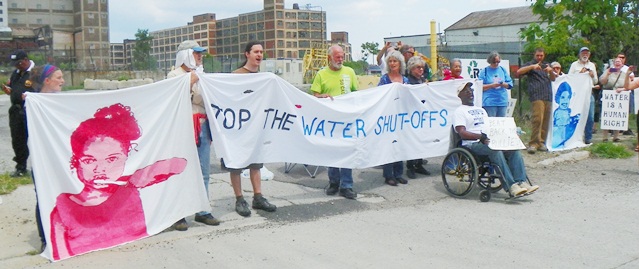
Blockade at gates of Homrich in July, 2014 before arrests of “Homrich 9.” The company just got another $6 million contract for shut-offs, more than the $5 million allotted for the WRAP water assistance program for the GLWA.
United Nations representatives then toured the neighborhoods, speaking to victims of shut-offs, and formally denounced the practice as inhumane and a violation of the UN Declaration of Human Rights charter.
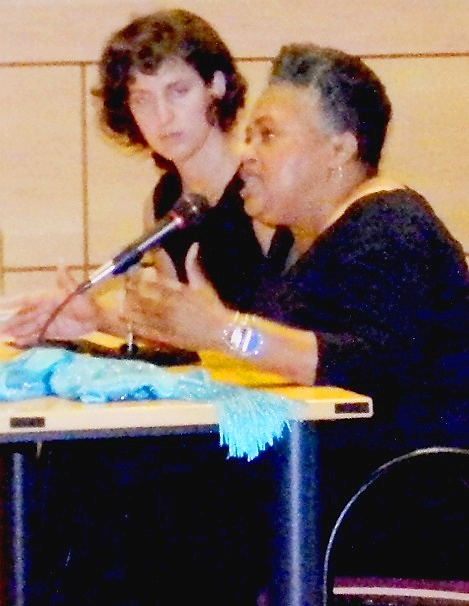
Monica Lewis Patrick , a leader of We the People of Detroit, addresses forum Aug. 14, 2016.
Taylor said Monica Lewis-Patrick of We the People and other groups decided they would have to document the reality of the situation themselves, after the City of Detroit denied their requests for statistical information. They recruited experienced professors to coordinate a study, including Emily Kutil, the project’s lead designer, and Dr. Andrew Herschner of the University of Michigan, and used 30 volunteers to do neighborhood surveys.
The resulting book, “Mapping the Water Crisis—the dismantling of African-American Neighborhoods in Detroit,” includes maps showing the history of the Detroit Water and Sewerage Department from its founding in 1900 and its expansion through six counties, prior to its takeover by the regional Great Lakes Water Authority. That takeover was mandated by U.S. Bankruptcy Judge Steven Rhodes in the Detroit bankruptcy confirmation plan, and carried out June 1, 2015.
Above: Emily Kutil speaks Aug. 16, 2016
“The City of Detroit built that structure and until the end of last year it was operated by DWSD,” Kutil said. “The water infrastructure did as much if not more than the construction of the freeways to subsidize the growth of the suburbs. The City of Detroit handled wastewater treatment everywhere, essentially all at one facility.”

DWSD service area map in “Mapping the Water Crisis.”
The study says DWSD’s expansion was “capital intensive,” with its costs borne solely by city residents. Before the GLWA takeover, it says, the DWSD serviced around three million people in an area encompassing 1000 square miles. That was over 40 percent of the state’s population, according to other reports. The DWSD provided and maintained water systems for 125 communities and sewer systems for 77 communities outside of the City of Detroit proper.
“During the second half of the twentieth century,” the study says, “the vast area serviced by DWSD became increasingly divided by race and class, with many suburban communities absorbing the middle-class white population leaving Detroit. [This] created two sets of users of DWSD, one, primarily Black and working class in Detroit, inheritors of a long history of racially unequal access to housing, employment, education and credit, and the other, primarily white and middle- and upper-class in Detroit’s suburban municipalities, beneficiaries of that long history of inequality.
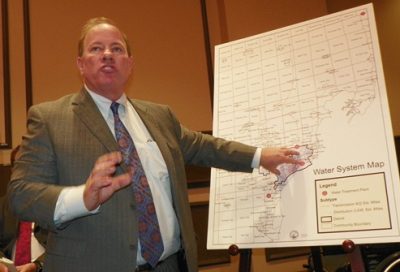
Detroit Mayor Mike Duggan, with hand over Detroit, explains at bankruptcy press conference how DWSD will retain control only over minor water mains within city borders, while the regional GLWA will take control of outlying counties as well as water and wastewater treatment plants within Detroit.
Dr. Andrew Herscher explained much of that history in his report. He noted that marked inequality continues in water shut-off policies, with many suburban communities not allowed to shut water off at all, as if recognizing the human right to water, and others with much more lenient policies on shut-offs than those used in Detroit. DWSD is required to shut off water for arrearages as low as $45.00.
He stressed the profound racial inequality demonstrated by such policies.
The full video of his talk can be accessed at Leona McElvene’s channel, MacSpeaking at https://youtu.be/6UGDxwdpFAU. (There is a link to her channel in the “Links” column to the right of this page.)

GLWA ownership of all outlying areas in six counties, plus water plants and major mains in Detroit. GLWA controlled areas are in red. Graph from bankruptcy press conference.
Nadia Gaber, MTSP MD/PhD student at the University of California reported by video on the health impact of the shutoffs, an ongoing study, and outlined the methods used to survey Detroit’s neighborhoods to assess the health crisis.
“In 2014, the UN came to Detroit, and declared a public health crisis,” Gaber said. “So we set out to capture the real picture of the health impact of the shut-offs by adopting [a tool often used by the federal government after natural disasters.] In our case this was a this man-made disaster, a public health disaster. Since there is no public health department in Detroit, we called on community power. We trained over 30 volunteers to survey households in Detroit.
“Over the course of two weeks, we knocked on 388 doors in 22 blocks and got 104 responses. . . .Nearly 30 percent of our contacts had been shut-off, which seems incredibly high. We even talked to someone whose house had been shut-off for a 38 cent unpaid water bill. Fifty percent of the people were on some sort of payment plan. Only 30 percent of the households reported that every one there was healthy. So 70 percent had health issues. Forty-four percent of homes had multiple medical issues. One in four homes had someone living in a wheelchair. A quarter of the residents we surveyed used bottled water as their primary source of water which was a surprising number. Even when people had a large water bill, they were spending three to $100 a week on bottled water. They were worried about the quality and reliability of [water provided by DWSD].”
The report also explains the role that debt to the banks plays in increasing water rates, which the GLWA has declared are “revenue-based,” and the subsequent dramatic increase in water shut-offs in Detroit. VOD has reported before (see article links below) that the City of Detroit’s debt increased three-fold AFTER the bankruptcy confirmation plan went into effect, as contractors were awarded new bonds as well as city property and revenues. DWSD debt was supposed to have been cut $2 billion during the course of the bankruptcy, but the agreement to form the GLWA canceled that cut out, leaving the debt at over $5 billion. It has now skyrocketed to even higher levels.

DWSD monthly debt to the banks amounted to over 45% of its “revenue requirements” in 2015, according to GLWA chart, causing increase in water shut-offs.
The “Mapping the Water Crisis” report also details the history of water shut-offs in context with the imposition of Emergency Manager Kevyn Orr by Michigan Governor Rick Snyder, and his subsequent declaration of a phony bankruptcy that ended up greatly profiting the banks while impoverishing city retirees and residents, and stealing the major assets of Detroit, including DWSD. It also maps the discriminatory imposition of emergency managers across Michigan, apportioned solely to Black-majority cities.
Below, one graph shows how shut-offs dropped during periods of mass resistance, then began skyrocketing again. There are yet no plans for huge rallies, blockades, and other direct action against the shut-offs.
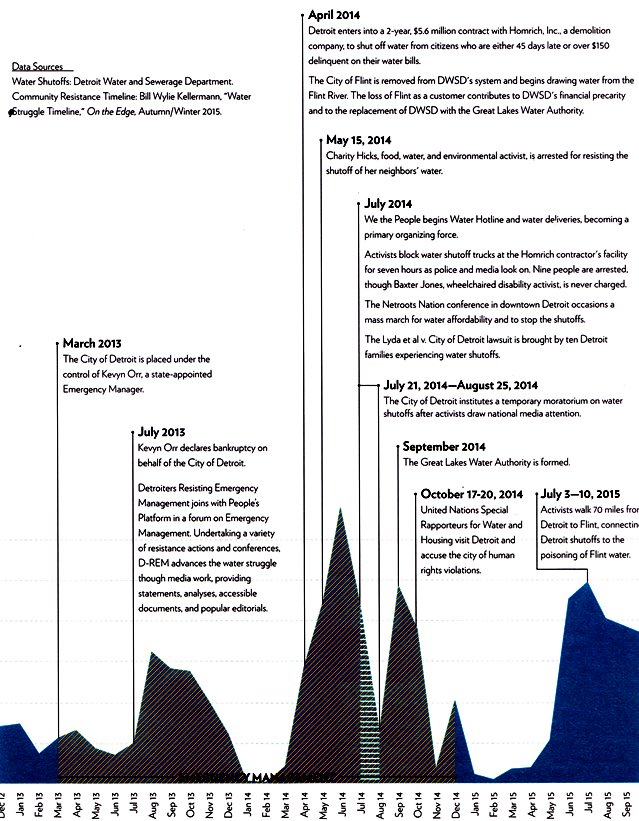
Monica Lewis-Patrick detailed plans for the future of the campaign, and the panel including Lewis Patrick, Dr. Gloria House, Dr. Herschner, and Emily Kutil answered questions from the audience (in the video below).
“In a couple of weeks, we will be teaching the rest of Detroit how to test their own water. There will also be be an extension of the research campaign. The fourth component is that our babies are brilliant. They came into this work saying we don’t want you to just relegate us to turning on the computer. We have something to really offer. Julia, director of the youth division for WTPRC, has ensured we are connecting our youth to legendary community activists that have done just a yeoman’s job of holding this city together.. They are being trained by Kate Levy to actually chronicle our own stories. This is part of us writing our own history. We’re asking all of you to be a part of [this]. [Report] if you’ve done anything on this campaign, been a part of mobilizing, educating, delivering water, making sure your neighbors have water, then we’re going to create a map of all the activism that’s happened.”
The report also focuses on the number of homes with water bills attached to property taxes that were auctioned off after foreclosure in 2014, a total of 11,959. Those who buy these homes become responsible not only for the back taxes, but also for water bill arrearages.
Below are graphs from the campaign detailing both the number of water shut-offs, as well as the number of foreclosures due to delinquent property taxes, with water bills attached to those taxes.
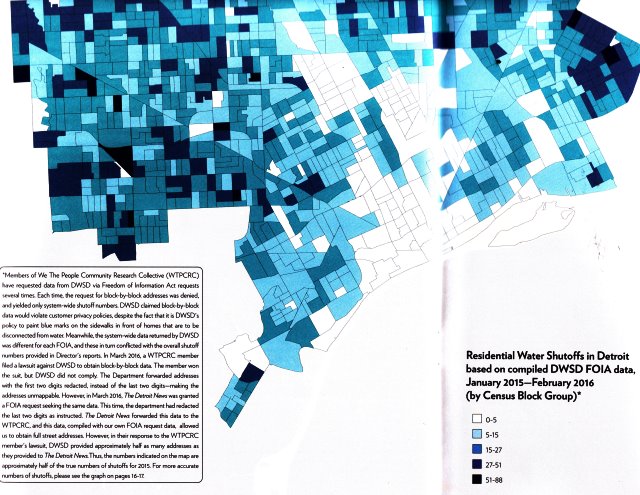
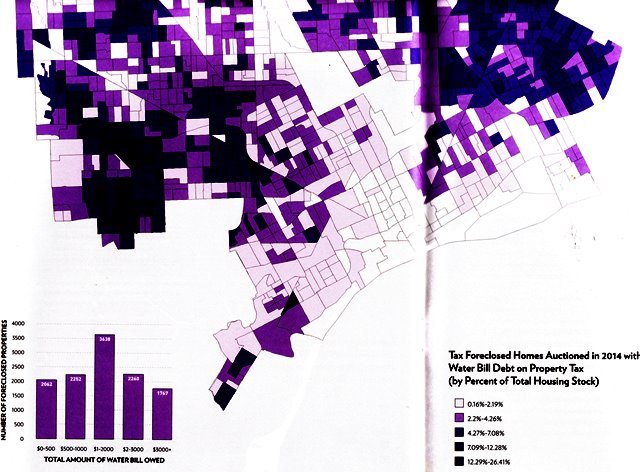
Organizers explained at the end of the forum that We the People of Detroit has formed a non-profit organization, and that Monica Lewis-Patrick and We the People of Detroit (WTPD) were nominated for a $500,000 grant from the KIND project to continue their program. They said out of 5,000 candidates who applied, WTPD made it to a group of 25, which will be winnowed to 15. Six candidates will win a grant, the top awardee receiving $500,000, with others receiving $100,000 each. A decision is to be made Aug. 31st. They asked people to use the hashtags #monicalewispatrick is #kindawesome for supporting people who don’t have water in Detroit, and also the hashtag #mappingthewatercrisis.
All video snippets of forum, by Leona McElvene can be accessed at:
1/10 – (Approx. 1 minute) – Opening Song by The Flowtown Revue Choir https://youtu.be/oUjKFIVFdoE
2/10 – (Approx. 2 minutes) – The Flowtown Revue Choir, STOP Turning Water Off https://youtu.be/6gXQbh90hBo
3/10 – (Approx. 2 minutes) – Hon. JoAnn Watson, We The People of Detroit Organizational Overview https://youtu.be/DSf-28ya_SM
4/10 – (Approx. 6 minutes) – Debra Taylor, The Story of the Community Research Collective (CRC) https://youtu.be/wVmbka_Rzlk
5/10 – (Approx. 7 minutes) – Dr. Andrew Herscher, Map Overview https://youtu.be/6UGDxwdpFAU
6/10 – (Approx. 12 minutes) – Emily Kutil, Charts/Graphic Overview https://youtu.be/j-blsZNVfaA
7/10 – (Approx. 6 minutes) – Nadia Gaber, Health Impact Study Update https://youtu.be/r7IcRjI39Yg
8/10 – (Approx. 30 minutes) – Dismantling of African-American Neighborhoods in Detroit – Q & A https://youtu.be/695Dfam_fQg
9/10 – (Approx. 7 minutes) – William Davis, President, DAREA; and J.T. Campbell, Arizona State Univ. https://youtu.be/XPcx_fFCtaM
10/10 – (Approx. 2 minutes) – Musical Performance by Next Generation Jazz Triohttps://youtu.be/EdHNfXk-zVw
For more information, visit https://wethepeopleofdetroit.com/communityresearch/.
Website: www.wethepeopleofdetroit.com
Email: wethepeopleofdetroit@gmail.com
Facebook: https://www.facebook.com/wethepeopleofdetroit
Twitter: @WeThePeopleDet
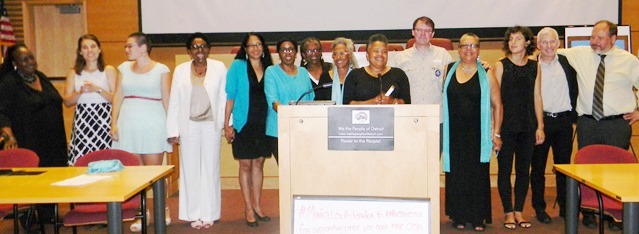
Some of the many organizers who sponsored “Mapping the Water Crisis” take a bow at the end.
#monicalewispatrick, #kindawesome, #mappingthewatercrisis, #FlintWater, #KWA, #FlintLivesMatter, #Waterislife, #Beatbackthebullies, #DAREA, #Detroit2Flint, #BlacklivesmatterDetroit, #DetroitWater, #OurWaterOurVote, #Right2Water, #Saveourchildren, #StandupNow, #SaveFlint, #SaveDetroit, #StopWaterShutoffsNOW
Related articles:
http://voiceofdetroit.net/2014/10/25/detroit-the-dispersal-of-urban-black-america-begins/
http://voiceofdetroit.net/2014/09/06/racist-bankruptcy-plan-hearing-sanctions-theft-of-detroit/
http://voiceofdetroit.net/2014/08/03/detroit-water-shut-offs-city-takeover-still-on-full-blast/
http://voiceofdetroit.net/2012/09/27/detroit-dwsd-debt-shows-wall-street-never-loses-on-bad-swaps/



 by BAR executive editor Glen Ford
by BAR executive editor Glen Ford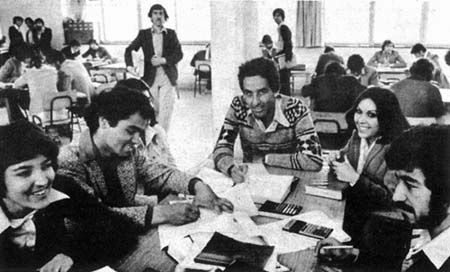





 “This creates the ideal situation for AQI [al Qaida in Iraq, which became ISIS] to return to its old pockets in Mosul and Ramadi, and will provide a renewed momentum under the presumption of unifying the jihad among Sunni Iraq and Syria, and the rest of the Sunnis in the Arab world against what it considers one enemy, the dissenters [meaning, Shia Muslims]. ISI could also declare an Islamic State through its union with other terrorist organizations in Iraq and Syria, which will create grave danger in regards to unifying Iraq and the protection of its territory.”
“This creates the ideal situation for AQI [al Qaida in Iraq, which became ISIS] to return to its old pockets in Mosul and Ramadi, and will provide a renewed momentum under the presumption of unifying the jihad among Sunni Iraq and Syria, and the rest of the Sunnis in the Arab world against what it considers one enemy, the dissenters [meaning, Shia Muslims]. ISI could also declare an Islamic State through its union with other terrorist organizations in Iraq and Syria, which will create grave danger in regards to unifying Iraq and the protection of its territory.”

 BAR executive editor Glen Ford can be contacted at
BAR executive editor Glen Ford can be contacted at ![Provided by AFP: This week, while barring a rally organised by [anti-Soviet] Mikhail Shneider, Moscow authorities sanctioned a Communist demonstration and former Soviet officials were shown on state TV voicing nostalgia for the repressive regime This week, while barring Shneider's rally, city authorities sanctioned a Communist demonstration and former Soviet officials were shown on state TV voicing nostalgia for the repressive regime.](http://voiceofdetroit.net/wp-content/uploads/Communist-rally-Russia-2016-640x443.jpg)
 By Maria Antonova
By Maria Antonova


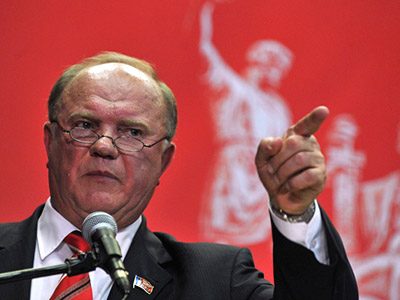

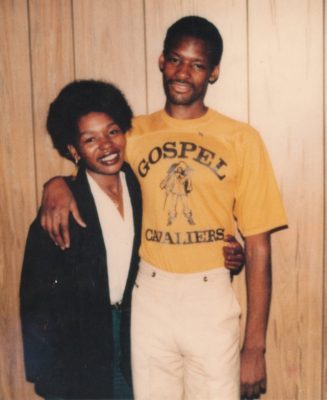
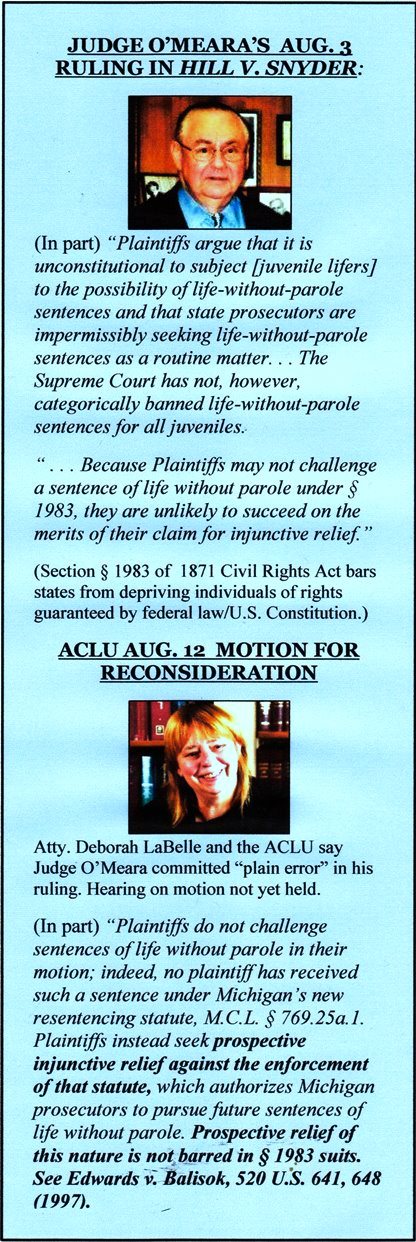 Despite Attorney Deborah LaBelle’s testimony July 28 that state prosecutors have re-recommended juvenile life without parole for 80 percent of Michigan’s juvenile lifers, on Aug. 3 Judge O’Meara handed down an unexpected ruling. He denied a motion for an injunction preventing further actions by courts until the constitutionality of the state statutes, MCL 769.25 and MCL 769.25a, can be determined. (See links to statutes at end of story.)
Despite Attorney Deborah LaBelle’s testimony July 28 that state prosecutors have re-recommended juvenile life without parole for 80 percent of Michigan’s juvenile lifers, on Aug. 3 Judge O’Meara handed down an unexpected ruling. He denied a motion for an injunction preventing further actions by courts until the constitutionality of the state statutes, MCL 769.25 and MCL 769.25a, can be determined. (See links to statutes at end of story.)
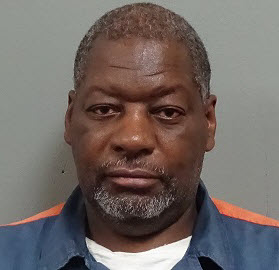

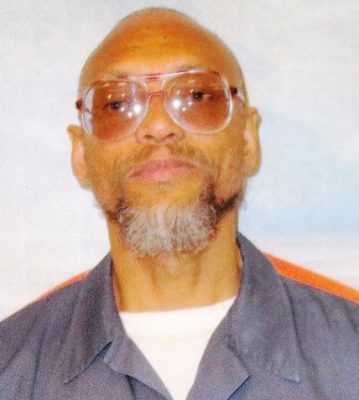

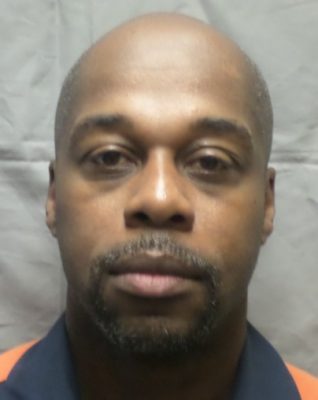
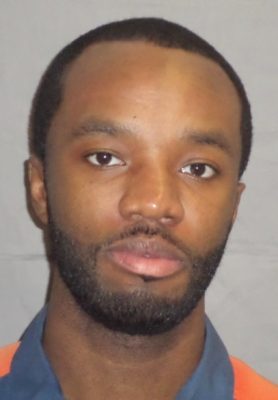
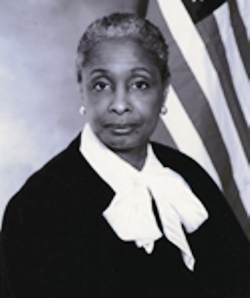

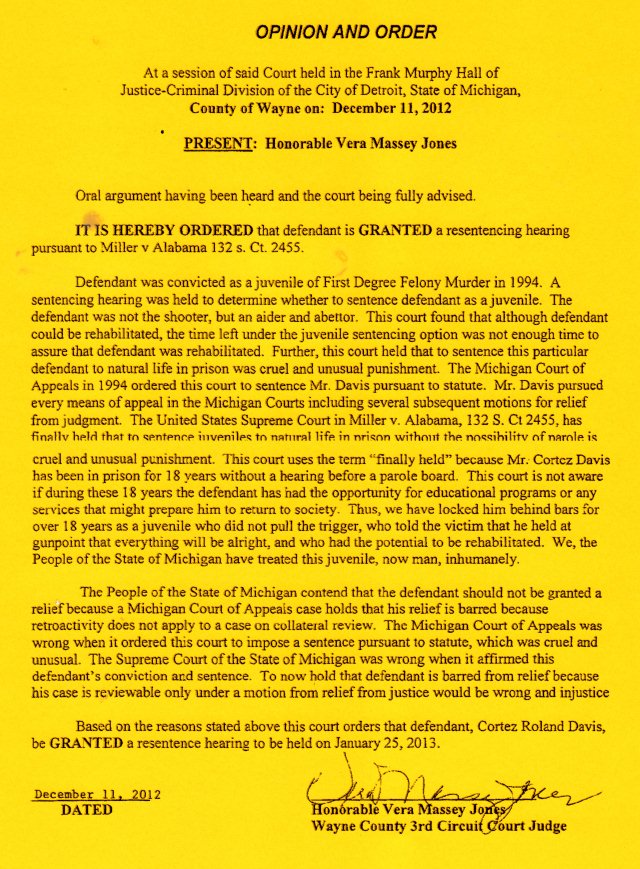 Davis recently contacted VOD.
Davis recently contacted VOD. “
“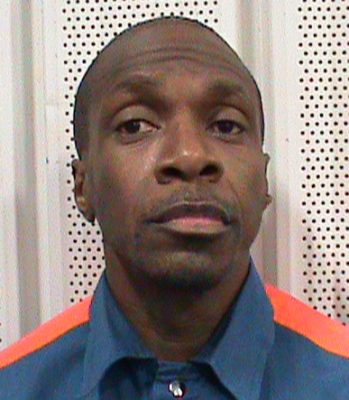



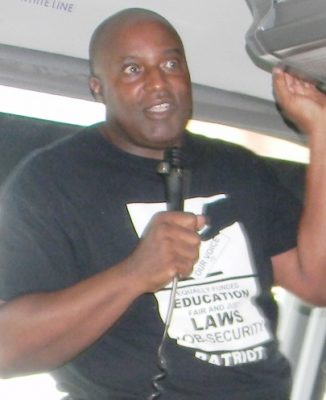
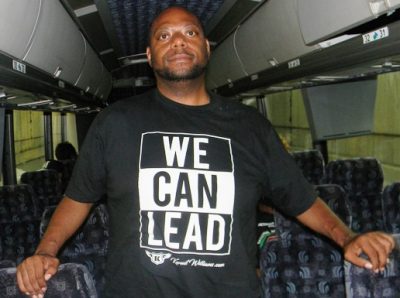
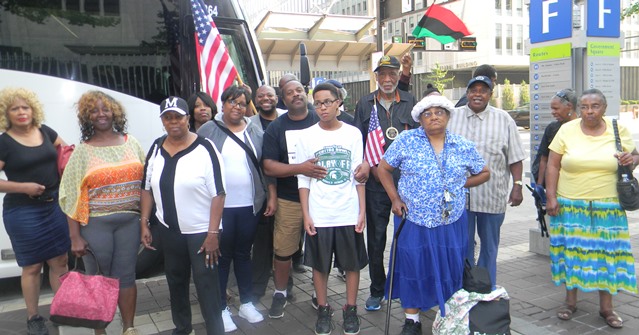



 They are appealing U.S. District Court Judge George Caram Steeh’s ruling of Nov. 19, 2014 in the case. Steeh dismissed eight of nine claims at the state’s request, upholding only the claim based on the Equal Protection Clause of the 14th Amendment, which cited the discriminatory use of Emergency Managers only in Michigan’s majority-Black cities.
They are appealing U.S. District Court Judge George Caram Steeh’s ruling of Nov. 19, 2014 in the case. Steeh dismissed eight of nine claims at the state’s request, upholding only the claim based on the Equal Protection Clause of the 14th Amendment, which cited the discriminatory use of Emergency Managers only in Michigan’s majority-Black cities.

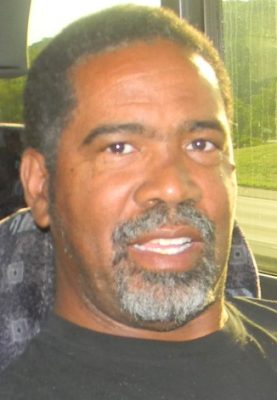

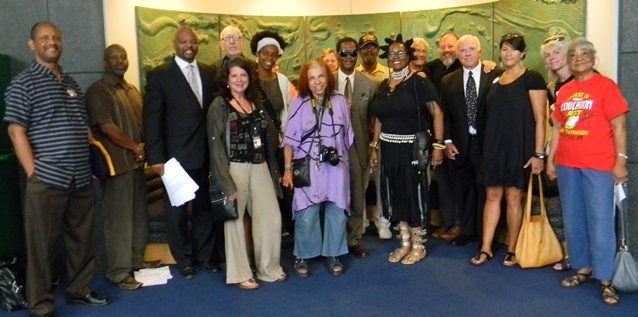

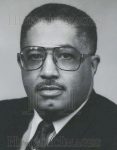

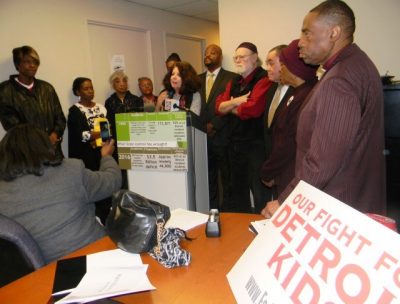



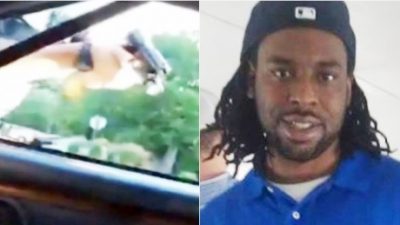


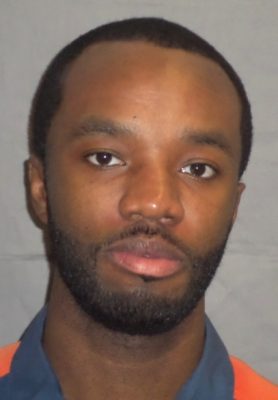
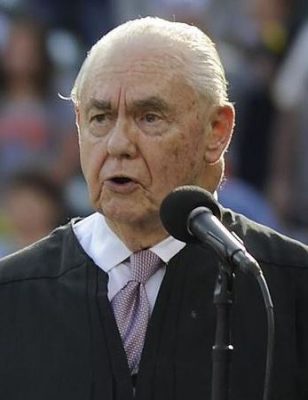
 After Montgomery, many of the state’s juvenile lifers who contacted VOD were so filled with hope that they began having friends and family members find jobs, education and housing for them, thinking their release was only months away.
After Montgomery, many of the state’s juvenile lifers who contacted VOD were so filled with hope that they began having friends and family members find jobs, education and housing for them, thinking their release was only months away.
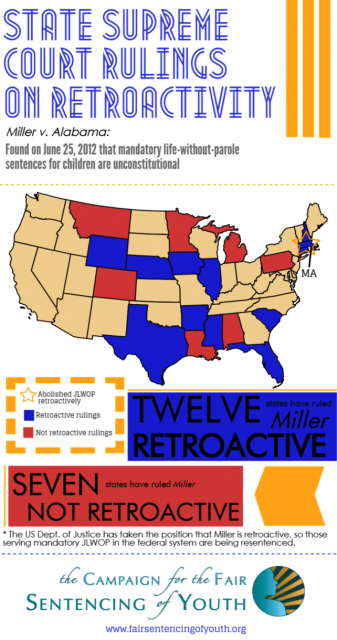 Instead, he said he will seek sentences between 20 and 35 years to life, depending on the age and nature of the crime. Two juvenile lifers, Tyrone Jones, now 59, and Henry Smolarski, now 53, both convicted in 1975, have now been re-sentenced accordingly and are eligible for parole, having served the maximum time.
Instead, he said he will seek sentences between 20 and 35 years to life, depending on the age and nature of the crime. Two juvenile lifers, Tyrone Jones, now 59, and Henry Smolarski, now 53, both convicted in 1975, have now been re-sentenced accordingly and are eligible for parole, having served the maximum time.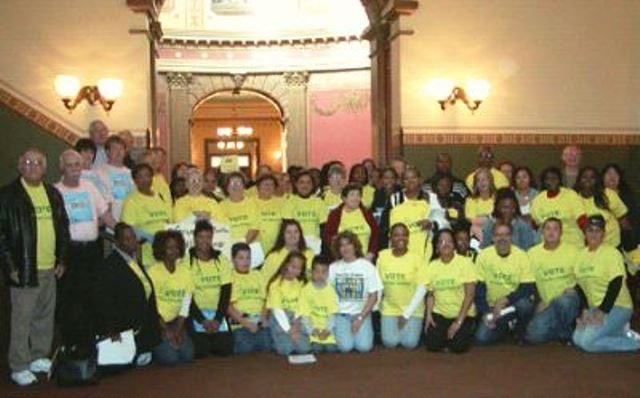

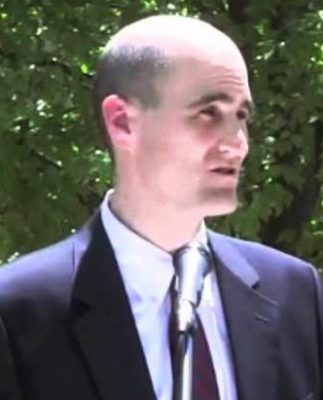
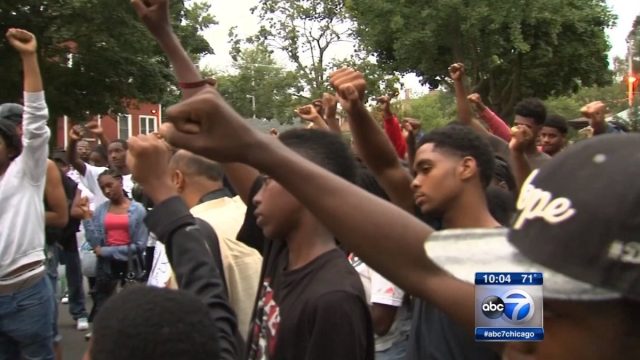
 Paul O’Neal aka Paull Oneal is a resident of
Paul O’Neal aka Paull Oneal is a resident of 
 Many are criticizing the
Many are criticizing the 